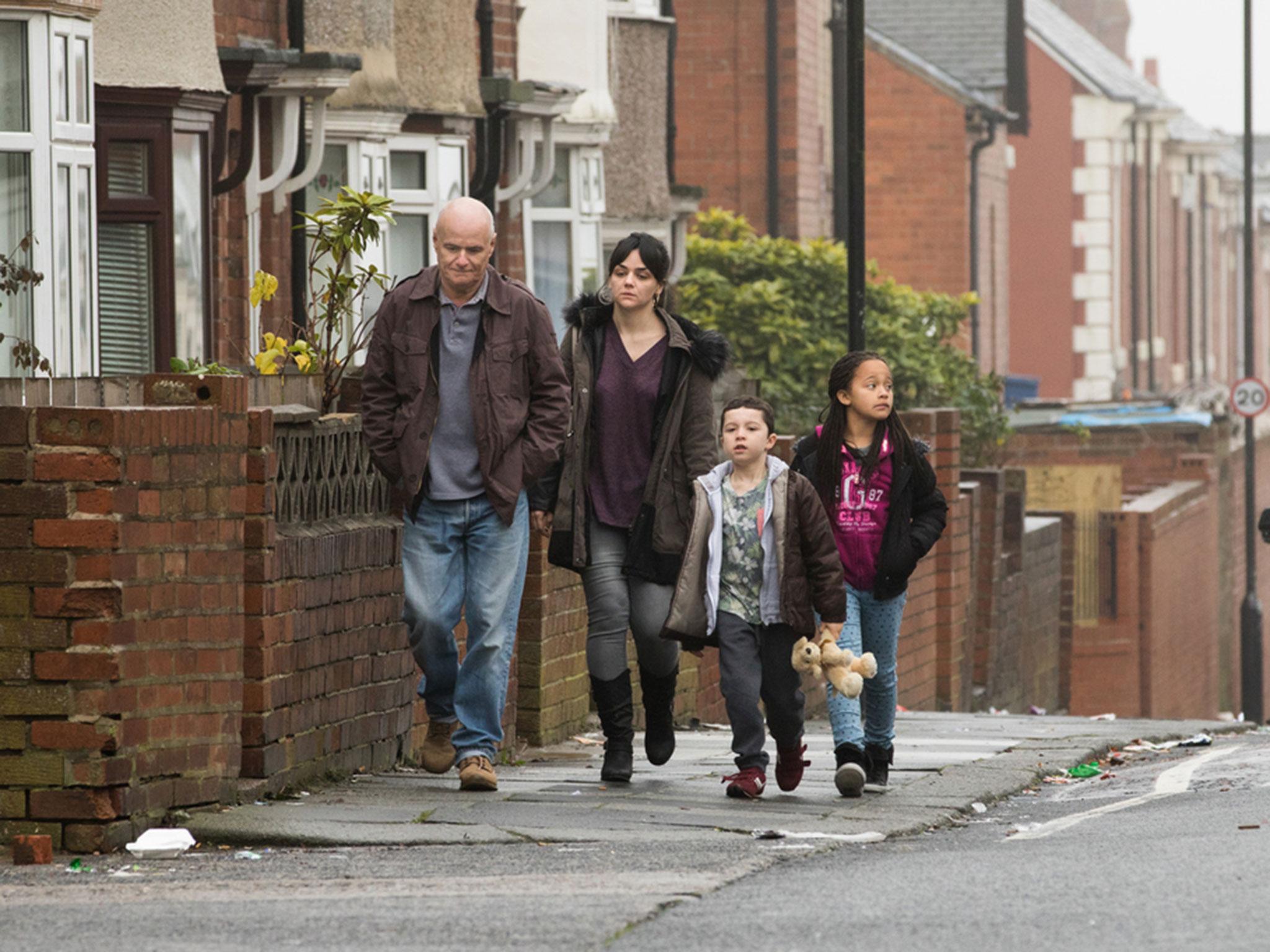I, Daniel Blake, film review: Ken Loach’s latest feature is melodramatic and intensely moving
At the age of 80, the director hasn’t lost his knack for telling stories about marginalised characters with wit, anger and humanity

Ken Loach’s latest feature (unveiled in competition in Cannes) is a story of an eminently decent man being ground down by an uncaring British welfare state. Scripted by Loach’s regular collaborator Paul Laverty, it is a melodramatic and sometimes very didactic film but also an intensely moving one.
Daniel Blake (Dave Johns) is a Newcastle joiner in late middle age who has had a heart attack. Warned by the doctor that he is not yet fit to return to work, he is obliged to sign on. He is dignified, self-reliant and full of compassion for others. To have to rely on benefits is deeply humiliating to him.
Early on, the film is perceptive and funny in its account of Daniel’s quest to receive the allowance he needs to live. We’re in a Kafkaesque world in which claimants who aren’t fit to work have to spend over 30 hours a week applying for jobs they can’t take in order to qualify for support. There are several reference to the Bedroom Tax. We see characters queuing for a small eternity to use food banks. Many of the people working in the job centre are casually cruel to applicants, seemingly oblivious to their desperation. When Daniel sees a young mother (Hayley Squires) being denied basic support for her selfand her two young kids because he is a few minutes late for her appointment, he intervenes on her behalf. This sparks an unlikely friendship between the 59-year-old Geordie and the young Londoner (who has come north in search of housing.)
Loach makes some trenchant points about how little contemporary British society values the wisdom and experience of men like Daniel. He doesn’t know how to use a computer or navigate his way around the internet. (There’s a comic set-piece in which he struggles to master a computer mouse.) However, he is both a very proficient craftsman and someone with extraordinary gifts of empathy and kindness. He is someone who has always looked out for others and yet, at his time of need, society has no time for him whatsoever.
The film doesn’t shirk from mawkishness. At times, with its references to prostitution, illness and homelessness, it has the air of a Victorian morality fable. Dave Johns gives a wonderful performance as Daniel, showing us the character’s humour, mischief and resilience as well his determination never to feel sorry for himself or to provoke pity in others. Loach ends the movie a little awkwardly with a set-piece speech that feels contrived. At 80, though, the director hasn’t lost his knack for telling stories about marginalised characters with wit, anger and humanity.
Join our commenting forum
Join thought-provoking conversations, follow other Independent readers and see their replies
Comments
Bookmark popover
Removed from bookmarks